Restless 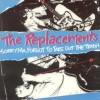
The first time I heard The Replacements was when my brother gave me a ride to school when I was in junior high, and he played a few tracks off of "Don't Tell a Soul," their almost unanimously reviled penultimate release. I remember being drawn in by the melodies, the quirky Westerberg lyrics, and the almost sloppy nature of it all. Plus, my brother and his friend liked it, and I was a total joiner back then. Years later, as my taste and interest in music improved, I started to look for more Replacements records, only to be disappointed by the lack of them in my record stores, and the apparent inability to order them because they were out of print. This was particularly true of their early output on TwinTone, which you could special order, but it was anyone's guess as to whether or not you would get it. Now, Restless Records is remedying that, albeit controversially, it seems.

The Replacements were never fond of the concept of CDs, as in the story of them trying to destroy their back catalog when they heard that TwinTone was releasing their albums on CD. As it turns out, they only succeeded in destroying the safety copies of the masters, so these Restless reissues of their first four albums are digitally remastered from the original tapes. Reportedly, the surviving members (original guitarist Bob Stinson died in 1995 of a drug overdose) are again not pleased by this project, with Westerberg even saying he was never asked for permission, and since they had no contract with TwinTone they have none with Restless so he might legally contest the pressings. Nevertheless, it is an opportunity for new audiences to hear The 'Mats, arguably the best rock band of the '80s (I still say it was Oingo Boingo. Sorry.) And what will those listeners hear? Probably the sloppiest, poorest recordings of a rock band in its infancy, but some really amazing songs. Is the sound quality all that different from the original CD releases on TwinTone? Nope. So if you have them already, folks, don't bother with these. However, for indie rock from Minneapolis in the '80s, these albums are pretty damned good.

"Sorry Ma" is the quickest and most disposable listen, with the band rocking through eighteen songs at an average of two minutes per song. It's almost The Replacements tribute to hardcore, but it's not in any way an indication of the quality of output they would produce on future records. Completists will love it for 'I Hate Music', 'Shiftless When Idle', and other catchy tunes, but for first time listeners, avoid. The real prize release is "Stink", with the hit potential of 'Fuck School' and 'Dope Smokin' Moron'. It's a raucous, quick record, as well, but it shows an emotional depth on select tracks, most notably 'Go'. Westerberg finally touches on the area he continues to mine today: love and the fear of loss. There's still a lot of edgy noise in their sound, like they want to be a punk band but just aren't good enough, but it's a fun listen for Bob Stinson's guitar antics, and Westerberg's painful vocals.
"Hootenanny" is where their sound really took off, with most of the hard, angry energy missing in favor of earnest songwriting. There are still some quickies, but with tracks like 'Willpower' and 'Within Your Reach' the band was starting to show potential. Westerberg's lyrics were improving, the band was getting tighter, and you can really hear that this was what they wanted more than anything. Which leads to "Let It Be".

Come on, how ballsy is that? They named an album "Let It Be". Were they trying to draw comparisons that are completely unwarranted? Were they just fans of the Beatles and decided to call a record after one of their favorite tracks? Or were they shoving it in the Fab Four's face, saying their era was over and it was time for a new one? My guess it the ladder, though I'm sure the band won't say. "Let It Be" is the best Replacements record: the most cohesive, the most original, and the most impressive. 'I Will Dare', 'Androgynous', 'Unsatisfied', 'Black Diamond, 'Answering Machine'; these are all classic songs for this or any band. The fun-loving spirit is still there, on 'Tommy Gets His Tonsils Out' and 'Gary's Got a Boner', but mostly the maturity of the band is starting to show. Westerberg actually sings, and plays piano. The music has come into its own, with the band improving their arrangements and musicianship. Peter Buck from REM contributes a guitar solo. It's just a great record. Of all of these, it's the one to own, and now's your chance. Then again, if you've never liked The Replacements, never mind. You still won't.
samples:
 It's a frigid and sleepless December night. I'm sitting in the darkness on the floor in the living room across from the tall, stoic fir tree, watching the metal ornaments on its branches shoot brief, brilliant sparks of light when cars pass, flashing their headlights through the front window. This is the experience of listening to 'Model 91', the debut album from Brooklyn duo Christmas Decorations. Using an ad hoc aesthetic built on the band's improv background, Steven Silverstein and Nick Forte create patient melodies that are much more sincere and approachable than the modern electronic composors from whom they draw their influence. The thumpy, low basslines on tracks such as "Brittle Stem" recall Graham Lewis' post-Wire recordings for 4AD, and the band's use of primitive digital sequencers contribute further to the early '80s feel of 'Model 91.' "Small Window" sounds like a computer on life support being gently nursed by the ambient guitar and bass. The vocals featured on several of the tracks are approriately monotone and disjointed (to the point of being potentially off-putting to the listener), but without sounding disaffected. Christmas Decorations are surely one of the most innovative new bands to appear this year, with their refreshingly raw, yet concise sound and bold approach.
It's a frigid and sleepless December night. I'm sitting in the darkness on the floor in the living room across from the tall, stoic fir tree, watching the metal ornaments on its branches shoot brief, brilliant sparks of light when cars pass, flashing their headlights through the front window. This is the experience of listening to 'Model 91', the debut album from Brooklyn duo Christmas Decorations. Using an ad hoc aesthetic built on the band's improv background, Steven Silverstein and Nick Forte create patient melodies that are much more sincere and approachable than the modern electronic composors from whom they draw their influence. The thumpy, low basslines on tracks such as "Brittle Stem" recall Graham Lewis' post-Wire recordings for 4AD, and the band's use of primitive digital sequencers contribute further to the early '80s feel of 'Model 91.' "Small Window" sounds like a computer on life support being gently nursed by the ambient guitar and bass. The vocals featured on several of the tracks are approriately monotone and disjointed (to the point of being potentially off-putting to the listener), but without sounding disaffected. Christmas Decorations are surely one of the most innovative new bands to appear this year, with their refreshingly raw, yet concise sound and bold approach.


 Although 'This Night' features a number of solidly written songs, this extremely production-heavy album emphasizes its faux-velvet-bell-bottom-wearin'-chamber-pop sound so forcefully—to the point of being tedious—that even those who acclimate will probably remain disgruntled.
Although 'This Night' features a number of solidly written songs, this extremely production-heavy album emphasizes its faux-velvet-bell-bottom-wearin'-chamber-pop sound so forcefully‚Äîto the point of being tedious‚Äîthat even those who acclimate will probably remain disgruntled.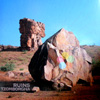 I adore this disc, I really do. Its fifteen studio tracks, mostly between two and three minutes each, are so dizzyingly dense that it will be a long time before I figure it out, if ever. The music is devoted to the prog rock aesthetics of the 70s and 80s and delivered with Japanese values of painstaking design, utilitarian efficiency, precision execution and quality. But I have some confidence in Tzomborgha's endurance since a) I always loved prog despite my self-consciousness over its profound unfasionability through the 80s (hatred and denunciation of prog was a tenet of 80s British music journalism), and b) much of the material is based on favorites from various periods of my youth: Crimson (70s and Discipline, yae!), Sabbath, Olivier Messiaen and John McLaughlin. The Mahavishnu and Sabbath Medleys are spectacular, of course, and fun crossword puzzles for the so inclined, while the Messiaen quotes are very hard to pin down. There's an extended blissed-out jam with pretty vocal and a cloying Fripp-like solo, an exercise in Indian styles, and Magma singing on several cuts (check the samples for each). Yoshida blessedly restrains his goofiest vocal excesses most of the time so there is seldom a feeling of parody. The Ruins have successfully defined and mastered their own mesogenre, put a huge variety of music in it, and made it highly entertaining and credible — a rare achievement of which this CD is a fine exhibit.
I adore this disc, I really do. Its fifteen studio tracks, mostly between two and three minutes each, are so dizzyingly dense that it will be a long time before I figure it out, if ever. The music is devoted to the prog rock aesthetics of the 70s and 80s and delivered with Japanese values of painstaking design, utilitarian efficiency, precision execution and quality. But I have some confidence in Tzomborgha's endurance since a) I always loved prog despite my self-consciousness over its profound unfasionability through the 80s (hatred and denunciation of prog was a tenet of 80s British music journalism), and b) much of the material is based on favorites from various periods of my youth: Crimson (70s and Discipline, yae!), Sabbath, Olivier Messiaen and John McLaughlin. The Mahavishnu and Sabbath Medleys are spectacular, of course, and fun crossword puzzles for the so inclined, while the Messiaen quotes are very hard to pin down. There's an extended blissed-out jam with pretty vocal and a cloying Fripp-like solo, an exercise in Indian styles, and Magma singing on several cuts (check the samples for each). Yoshida blessedly restrains his goofiest vocal excesses most of the time so there is seldom a feeling of parody. The Ruins have successfully defined and mastered their own mesogenre, put a huge variety of music in it, and made it highly entertaining and credible — a rare achievement of which this CD is a fine exhibit. 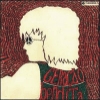 The 1970's Brazilian band Spectrum hailed from the Nova Friburgo region of Rio de Janeiro, which also hosted the well-known Os Mutantes. Spectrum shares a musically similar psychedelic slant with Os Mutantes, but without the refinement and prolificacy of their more famous compatriots. Despite its rough edges, Spectrum's soundtrack for the film 'Geracao Bendita' (The Blessed Generation) compiles a pleasant hodge-podge of 60's psych-influenced sounds which take from just about every band of the psych generation which it ought to. There are elements of the Mamas and the Papas, Simon and Garfunkel, Crosby, Stills, Nash and Young, Blue Cheer, and Jefferson Airplane, all complemented by a general fuzz that hovers throughout the album. There are even some funk sounds starting to creep in (see the beginning of "Pingo e Letra"), it being the 1970's and all. The soundtrack for the film (supposedly the first Brazilian hippie movie) has been out of print for some time now, but Shadoks Music has reissued it with new liner notes and photos. Songs alternate between English and Portuguese; meandering and straight-ahead; female and male vocals; fuzzed out and reverberating. The sound of Spectrum can best be likened to the broken English in which the liner notes are written: you can understand what both are trying to say, but it could be executed more crisply. For instance: "After that, Ramon was attacked by a disease, which made Tiao sacrifice himself in substituting him on the bass, with a lot of study, much devotion, persistence and performance." Unfortunately for Tiao, the persistence and the performance did not pay off, since the band itself had neither persistence nor performance. Spectrum was around for about four years, without ever performing live once as Spectrum. The band which prefigured Spectrum, 2000 Volts, played a number of club shows, as well as birthday parties and schools. 'Geracao Bendita' is a pleasant listen, helped in some part by the economy of the record, which lasts a perfectly allotted thirty minutes.
The 1970's Brazilian band Spectrum hailed from the Nova Friburgo region of Rio de Janeiro, which also hosted the well-known Os Mutantes. Spectrum shares a musically similar psychedelic slant with Os Mutantes, but without the refinement and prolificacy of their more famous compatriots. Despite its rough edges, Spectrum's soundtrack for the film 'Geracao Bendita' (The Blessed Generation) compiles a pleasant hodge-podge of 60's psych-influenced sounds which take from just about every band of the psych generation which it ought to. There are elements of the Mamas and the Papas, Simon and Garfunkel, Crosby, Stills, Nash and Young, Blue Cheer, and Jefferson Airplane, all complemented by a general fuzz that hovers throughout the album. There are even some funk sounds starting to creep in (see the beginning of "Pingo e Letra"), it being the 1970's and all. The soundtrack for the film (supposedly the first Brazilian hippie movie) has been out of print for some time now, but Shadoks Music has reissued it with new liner notes and photos. Songs alternate between English and Portuguese; meandering and straight-ahead; female and male vocals; fuzzed out and reverberating. The sound of Spectrum can best be likened to the broken English in which the liner notes are written: you can understand what both are trying to say, but it could be executed more crisply. For instance: "After that, Ramon was attacked by a disease, which made Tiao sacrifice himself in substituting him on the bass, with a lot of study, much devotion, persistence and performance." Unfortunately for Tiao, the persistence and the performance did not pay off, since the band itself had neither persistence nor performance. Spectrum was around for about four years, without ever performing live once as Spectrum. The band which prefigured Spectrum, 2000 Volts, played a number of club shows, as well as birthday parties and schools. 'Geracao Bendita' is a pleasant listen, helped in some part by the economy of the record, which lasts a perfectly allotted thirty minutes. The first time I heard The Replacements was when my brother gave me a ride to school when I was in junior high, and he played a few tracks off of "Don't Tell a Soul," their almost unanimously reviled penultimate release. I remember being drawn in by the melodies, the quirky Westerberg lyrics, and the almost sloppy nature of it all. Plus, my brother and his friend liked it, and I was a total joiner back then. Years later, as my taste and interest in music improved, I started to look for more Replacements records, only to be disappointed by the lack of them in my record stores, and the apparent inability to order them because they were out of print. This was particularly true of their early output on TwinTone, which you could special order, but it was anyone's guess as to whether or not you would get it. Now, Restless Records is remedying that, albeit controversially, it seems.
The first time I heard The Replacements was when my brother gave me a ride to school when I was in junior high, and he played a few tracks off of "Don't Tell a Soul," their almost unanimously reviled penultimate release. I remember being drawn in by the melodies, the quirky Westerberg lyrics, and the almost sloppy nature of it all. Plus, my brother and his friend liked it, and I was a total joiner back then. Years later, as my taste and interest in music improved, I started to look for more Replacements records, only to be disappointed by the lack of them in my record stores, and the apparent inability to order them because they were out of print. This was particularly true of their early output on TwinTone, which you could special order, but it was anyone's guess as to whether or not you would get it. Now, Restless Records is remedying that, albeit controversially, it seems.  The Replacements were never fond of the concept of CDs, as in the story of them trying to destroy their back catalog when they heard that TwinTone was releasing their albums on CD. As it turns out, they only succeeded in destroying the safety copies of the masters, so these Restless reissues of their first four albums are digitally remastered from the original tapes. Reportedly, the surviving members (original guitarist Bob Stinson died in 1995 of a drug overdose) are again not pleased by this project, with Westerberg even saying he was never asked for permission, and since they had no contract with TwinTone they have none with Restless so he might legally contest the pressings. Nevertheless, it is an opportunity for new audiences to hear The 'Mats, arguably the best rock band of the '80s (I still say it was Oingo Boingo. Sorry.) And what will those listeners hear? Probably the sloppiest, poorest recordings of a rock band in its infancy, but some really amazing songs. Is the sound quality all that different from the original CD releases on TwinTone? Nope. So if you have them already, folks, don't bother with these. However, for indie rock from Minneapolis in the '80s, these albums are pretty damned good.
The Replacements were never fond of the concept of CDs, as in the story of them trying to destroy their back catalog when they heard that TwinTone was releasing their albums on CD. As it turns out, they only succeeded in destroying the safety copies of the masters, so these Restless reissues of their first four albums are digitally remastered from the original tapes. Reportedly, the surviving members (original guitarist Bob Stinson died in 1995 of a drug overdose) are again not pleased by this project, with Westerberg even saying he was never asked for permission, and since they had no contract with TwinTone they have none with Restless so he might legally contest the pressings. Nevertheless, it is an opportunity for new audiences to hear The 'Mats, arguably the best rock band of the '80s (I still say it was Oingo Boingo. Sorry.) And what will those listeners hear? Probably the sloppiest, poorest recordings of a rock band in its infancy, but some really amazing songs. Is the sound quality all that different from the original CD releases on TwinTone? Nope. So if you have them already, folks, don't bother with these. However, for indie rock from Minneapolis in the '80s, these albums are pretty damned good.  "Sorry Ma" is the quickest and most disposable listen, with the band rocking through eighteen songs at an average of two minutes per song. It's almost The Replacements tribute to hardcore, but it's not in any way an indication of the quality of output they would produce on future records. Completists will love it for 'I Hate Music', 'Shiftless When Idle', and other catchy tunes, but for first time listeners, avoid. The real prize release is "Stink", with the hit potential of 'Fuck School' and 'Dope Smokin' Moron'. It's a raucous, quick record, as well, but it shows an emotional depth on select tracks, most notably 'Go'. Westerberg finally touches on the area he continues to mine today: love and the fear of loss. There's still a lot of edgy noise in their sound, like they want to be a punk band but just aren't good enough, but it's a fun listen for Bob Stinson's guitar antics, and Westerberg's painful vocals.
"Sorry Ma" is the quickest and most disposable listen, with the band rocking through eighteen songs at an average of two minutes per song. It's almost The Replacements tribute to hardcore, but it's not in any way an indication of the quality of output they would produce on future records. Completists will love it for 'I Hate Music', 'Shiftless When Idle', and other catchy tunes, but for first time listeners, avoid. The real prize release is "Stink", with the hit potential of 'Fuck School' and 'Dope Smokin' Moron'. It's a raucous, quick record, as well, but it shows an emotional depth on select tracks, most notably 'Go'. Westerberg finally touches on the area he continues to mine today: love and the fear of loss. There's still a lot of edgy noise in their sound, like they want to be a punk band but just aren't good enough, but it's a fun listen for Bob Stinson's guitar antics, and Westerberg's painful vocals. Come on, how ballsy is that? They named an album "Let It Be". Were they trying to draw comparisons that are completely unwarranted? Were they just fans of the Beatles and decided to call a record after one of their favorite tracks? Or were they shoving it in the Fab Four's face, saying their era was over and it was time for a new one? My guess it the ladder, though I'm sure the band won't say. "Let It Be" is the best Replacements record: the most cohesive, the most original, and the most impressive. 'I Will Dare', 'Androgynous', 'Unsatisfied', 'Black Diamond, 'Answering Machine'; these are all classic songs for this or any band. The fun-loving spirit is still there, on 'Tommy Gets His Tonsils Out' and 'Gary's Got a Boner', but mostly the maturity of the band is starting to show. Westerberg actually sings, and plays piano. The music has come into its own, with the band improving their arrangements and musicianship. Peter Buck from REM contributes a guitar solo. It's just a great record. Of all of these, it's the one to own, and now's your chance. Then again, if you've never liked The Replacements, never mind. You still won't.
Come on, how ballsy is that? They named an album "Let It Be". Were they trying to draw comparisons that are completely unwarranted? Were they just fans of the Beatles and decided to call a record after one of their favorite tracks? Or were they shoving it in the Fab Four's face, saying their era was over and it was time for a new one? My guess it the ladder, though I'm sure the band won't say. "Let It Be" is the best Replacements record: the most cohesive, the most original, and the most impressive. 'I Will Dare', 'Androgynous', 'Unsatisfied', 'Black Diamond, 'Answering Machine'; these are all classic songs for this or any band. The fun-loving spirit is still there, on 'Tommy Gets His Tonsils Out' and 'Gary's Got a Boner', but mostly the maturity of the band is starting to show. Westerberg actually sings, and plays piano. The music has come into its own, with the band improving their arrangements and musicianship. Peter Buck from REM contributes a guitar solo. It's just a great record. Of all of these, it's the one to own, and now's your chance. Then again, if you've never liked The Replacements, never mind. You still won't.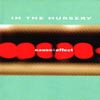 Most of the time, the original material from twin brothers Klive and Nigel Humberstone (with the occasional help of Dolores C. on vocals) is as close to perfection as possible: dream-like neo-romanticism with classical elements, passionate and sometimes even a bit too ethereal for the 'real world'. It's the kind of music to cherish for special moments which come less frequently as this music deserves. I was curious when I first heard about this remix project.
Most of the time, the original material from twin brothers Klive and Nigel Humberstone (with the occasional help of Dolores C. on vocals) is as close to perfection as possible: dream-like neo-romanticism with classical elements, passionate and sometimes even a bit too ethereal for the 'real world'. It's the kind of music to cherish for special moments which come less frequently as this music deserves. I was curious when I first heard about this remix project.  On 'Kicker in Tow,' Hangedup explore territory stylistically similar to their excellent self-titled debut, but the viola and percussion duo is even more finely tuned and powerfully compelling this time, making this a wonderful album. They play repetitive but lively rock music with clear minimalism and folk influences, and the nine songs on this record are a blend of well-executed improvised and composed pieces.
On 'Kicker in Tow,' Hangedup explore territory stylistically similar to their excellent self-titled debut, but the viola and percussion duo is even more finely tuned and powerfully compelling this time, making this a wonderful album. They play repetitive but lively rock music with clear minimalism and folk influences, and the nine songs on this record are a blend of well-executed improvised and composed pieces.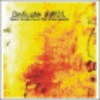 The south London sextet Delicate AWOL has other projects besides their recently released 'Heart Drops From the Great Space.' They run a label called Day Release Records and they play in the band Rothko, sometimes referred to as their "alter ego." On 'Heart Drops From The Great Space,' Delicate AWOL craft a baroque arrangement of jazz, post-rock, and classical, perhaps plucking unique pieces from the spheres of their other projects outside the band. The layers throughout the album are largely twofold, though: jazz and rock. Third and fourth minor layers are the chamber-pop strings and the electronic glitches which pop up in some songs. But every now and then, all of these layers evaporate along with their relevant instruments and leave bare the skeletal side of the band, which is often more honest and true and delicate than the rest. On "That Terminal's Down," the bass guitar, drums, and horn-tooting eventually give way to simply shimmery chimes and Caroline Ross's vocals, and it sounds lovely. These sparer parts on the album are unfortunately infrequent, but when they do arrive, they do so stylishly and with panache. Throughout the record, the jazz layer of Delicate AWOL is slightly abrasive, largely because the horns suggest that this album should be labeled as a lounge rock album. But I think there is more going on here than just background music to Scotch and cigarettes. It peaks out from behind the velvet curtain occasionally, when it hears the horns subdued, the strings muted, and the rhythms dissipated. Appreciation of Delicate AWOL is developed through these built-in contrasts, though this renders some of 'Heart Drops From The Great Space' much more listenable than the rest.
The south London sextet Delicate AWOL has other projects besides their recently released 'Heart Drops From the Great Space.' They run a label called Day Release Records and they play in the band Rothko, sometimes referred to as their "alter ego." On 'Heart Drops From The Great Space,' Delicate AWOL craft a baroque arrangement of jazz, post-rock, and classical, perhaps plucking unique pieces from the spheres of their other projects outside the band. The layers throughout the album are largely twofold, though: jazz and rock. Third and fourth minor layers are the chamber-pop strings and the electronic glitches which pop up in some songs. But every now and then, all of these layers evaporate along with their relevant instruments and leave bare the skeletal side of the band, which is often more honest and true and delicate than the rest. On "That Terminal's Down," the bass guitar, drums, and horn-tooting eventually give way to simply shimmery chimes and Caroline Ross's vocals, and it sounds lovely. These sparer parts on the album are unfortunately infrequent, but when they do arrive, they do so stylishly and with panache. Throughout the record, the jazz layer of Delicate AWOL is slightly abrasive, largely because the horns suggest that this album should be labeled as a lounge rock album. But I think there is more going on here than just background music to Scotch and cigarettes. It peaks out from behind the velvet curtain occasionally, when it hears the horns subdued, the strings muted, and the rhythms dissipated. Appreciation of Delicate AWOL is developed through these built-in contrasts, though this renders some of 'Heart Drops From The Great Space' much more listenable than the rest.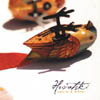 When most music snobs think of the word album, they tend to discount the concept of the compilation (in comparison to the release of a full-length recording of new material). In actuality, all full-length albums are compilations themselves of thoughts and ideas which materialize as audio compositions. While Keith Fullerton Whitman has never recorded and released a full-length album as Hrvatski, listening to his second compilation is much like going through somebody's personal photo album with the brief little captions underneath each picture. "Here I am restructuring a Kid 606 track you've all heard," "this one was taken in the hallway of an apartment building," "here I am doing a Rolling Stones tribute," and thankfully each snapshot is enjoyable. For 'Swarm and Dither,' the whole story isn't even close to being completed—this isn't to be regarded as an anthology or a definitive collection, however it does make for a great collection of the finer moments of Whitman's experience as Hrvatski, picking up where 1998's 'Oiseaux' left off. Included are the choppy hyperactive cuts like "2nd Zero Fidelity Mandible Investigation" which could easily have been recorded the same day as the opening classic "Vatstep DSP," appearing for the first time ever on a Hrvatski record (outnumbered by the two appearances on Kid 606 projects). The 16-second "Untitled Fields" is a good tension-reliever as well as the all-too-short "Gemini," culled from the release 'Autumn Nature.' Some of the more chin-scratching pieces include his abstract cover version of "Paint It, Black," and the sample-montage of "Anestetise Thineself," in which he could easily be paying tribute to Tear Garden's "OOEEOO," but I doubt that was intentional. My personal favorite moments on the compilation are the new tracks "Freie Zeit," an improvised bit which just happened to be captured and the waltzing closer, "Tegenborg," equipped with enough distorted prog-rock cock-rock guitars and hand claps to make any DSP fan cringe. Maybe one of these days Hrvatski will do some sort of a conceptual album, but for now, this listen is rewarding enough.
When most music snobs think of the word album, they tend to discount the concept of the compilation (in comparison to the release of a full-length recording of new material). In actuality, all full-length albums are compilations themselves of thoughts and ideas which materialize as audio compositions. While Keith Fullerton Whitman has never recorded and released a full-length album as Hrvatski, listening to his second compilation is much like going through somebody's personal photo album with the brief little captions underneath each picture. "Here I am restructuring a Kid 606 track you've all heard," "this one was taken in the hallway of an apartment building," "here I am doing a Rolling Stones tribute," and thankfully each snapshot is enjoyable. For 'Swarm and Dither,' the whole story isn't even close to being completed—this isn't to be regarded as an anthology or a definitive collection, however it does make for a great collection of the finer moments of Whitman's experience as Hrvatski, picking up where 1998's 'Oiseaux' left off. Included are the choppy hyperactive cuts like "2nd Zero Fidelity Mandible Investigation" which could easily have been recorded the same day as the opening classic "Vatstep DSP," appearing for the first time ever on a Hrvatski record (outnumbered by the two appearances on Kid 606 projects). The 16-second "Untitled Fields" is a good tension-reliever as well as the all-too-short "Gemini," culled from the release 'Autumn Nature.' Some of the more chin-scratching pieces include his abstract cover version of "Paint It, Black," and the sample-montage of "Anestetise Thineself," in which he could easily be paying tribute to Tear Garden's "OOEEOO," but I doubt that was intentional. My personal favorite moments on the compilation are the new tracks "Freie Zeit," an improvised bit which just happened to be captured and the waltzing closer, "Tegenborg," equipped with enough distorted prog-rock cock-rock guitars and hand claps to make any DSP fan cringe. Maybe one of these days Hrvatski will do some sort of a conceptual album, but for now, this listen is rewarding enough. Right off the bat I want to get something off my chest: had I not been familiar with Whitman's work as Hrvatski nor trusting of the label Kranky, I would have been completely thrown off by the clinicization of music by the words "laptop," "ring modulators," "granular re-synthesis algorithms," "drone," "academic," and (especially) "Terry Riley" in the description on the web site. Seeing something like this is almost remeniscent of the magic of fucking nearly ruined by the overexplaination by a creepy teacher in a high school sex ed class. That said, the music on KFW's debut is alarmingly attention-commanding for a beat-less, lyric-free excursion.
Right off the bat I want to get something off my chest: had I not been familiar with Whitman's work as Hrvatski nor trusting of the label Kranky, I would have been completely thrown off by the clinicization of music by the words "laptop," "ring modulators," "granular re-synthesis algorithms," "drone," "academic," and (especially) "Terry Riley" in the description on the web site. Seeing something like this is almost remeniscent of the magic of fucking nearly ruined by the overexplaination by a creepy teacher in a high school sex ed class. That said, the music on KFW's debut is alarmingly attention-commanding for a beat-less, lyric-free excursion.
